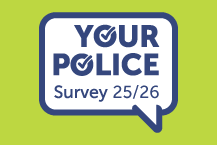Payment in Advance Scam
What is it?
Also known as an advance fee scam, this is when you’re convinced to pay an upfront fee in order to receive a prize/service or high-value goods, which never materialise.
How to spot a payment in advance scam
- You’re asked to pay an upfront fee to receive money or a prize/service that you weren’t expecting
- You’re asked to pay an upfront fee for training programmes or background checks for jobs that don’t exist
- You’re told that the fee is refundable and will be used as a deposit or an administrative charge
- There are follow-up fees which you need to pay in order to secure the loan, prize or goods
- You are put under pressure to pay quickly using an alternate method such as a wire or bank transfer, or cryptocurrency
- The domain name doesn’t match the sender of the email e.g. gov.uk or gov.scot
Examples of payment in advance scams
Loan
Leanne responded to an advert online for a fast loan and her application was approved regardless of her poor credit history. She was asked to pay an administration fee to cover insurance for the loan. But once the fee was paid, there was no further contact from the ‘loan company’ and payment of the loan was never made.
Inheritance
Bernie was contacted unexpectedly by a ‘lawyer’ from overseas who claimed that a person sharing his last name had left him with an inheritance and that if unclaimed the money would go to the government. He was told that he needed to pay several fees to release his supposed inheritance. He was sent seemingly genuine legal documents to sign. Once the fees were paid, no ‘inheritance’ money was received, and Bernie was unable to contact the ‘lawyer’.
Lottery
Akhil was contacted out of the blue and told that he’d won a large amount of money on an overseas lottery he hadn’t entered. He was asked to pay a fee to cover government taxes and courier charges. Once payment had been made, and contact stopped and he received no winnings.
Jewellery
Elsa received an email informing her that jewellery she wasn’t expecting to receive was held up at customs pending clearance in the United States. She was told that her package wouldn’t be released until the shipping fee was paid. Once the fee was paid, no jewellery was received, and she was unable to contact customs.
Recruitment
After being made redundant the previous week, Marcus was searching for a job online when he came across an advert on a popular website for a job requiring limited experience with a high salary. Upon completing his application Marcus was asked to call the company to attend a “telephone interview”, not knowing that he was being charged a premium for using the advertised number. He received an email from the recruiter informing him that he had been successful, but he needed to urgently pay an upfront fee for a background check before he could receive his job offer. Marcus proceeded to make payment to the bank details provided, desperate to secure his “new role” and unknowing that he had in fact fallen for a scam.
If you believe you’ve fallen for a scam, contact your bank immediately on a number you know to be correct, such as the one listed on your statement, their website or on the back of your debit or credit card and report it to the police by calling 101.







